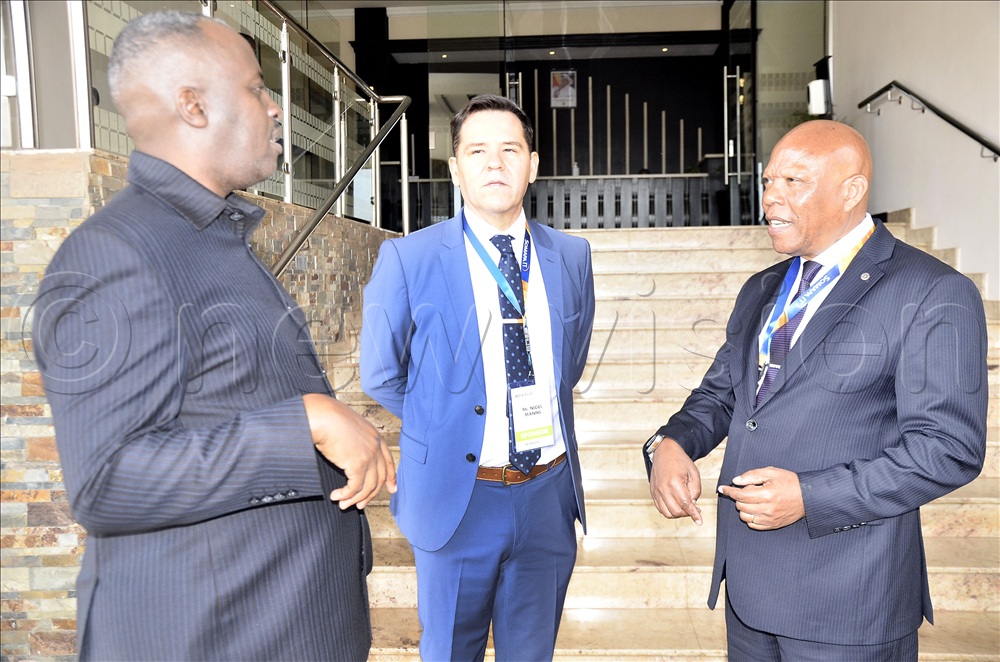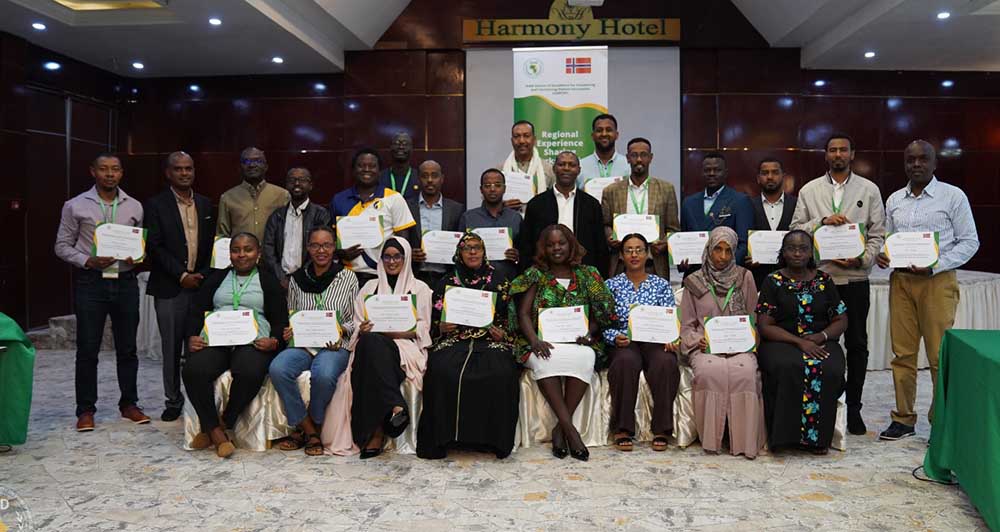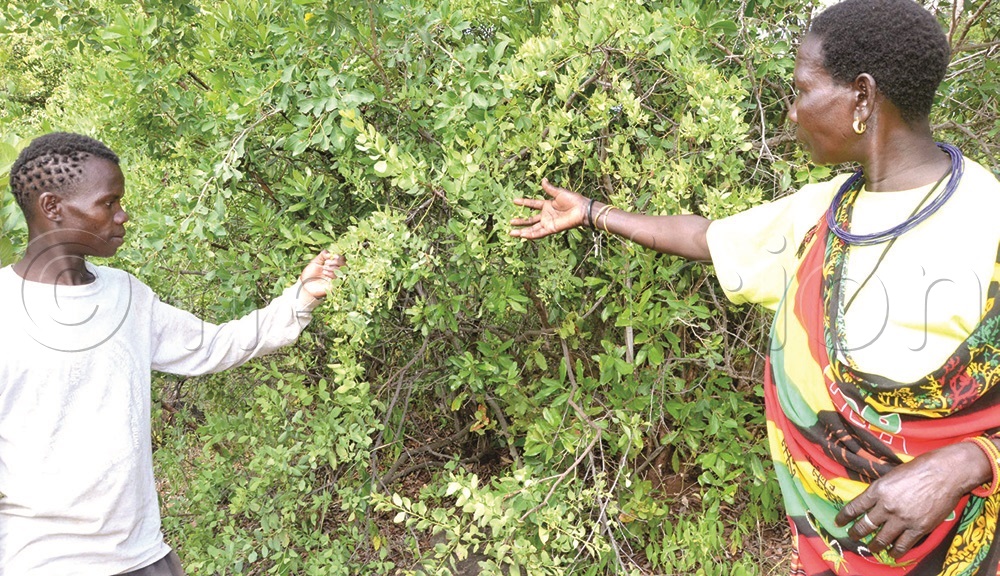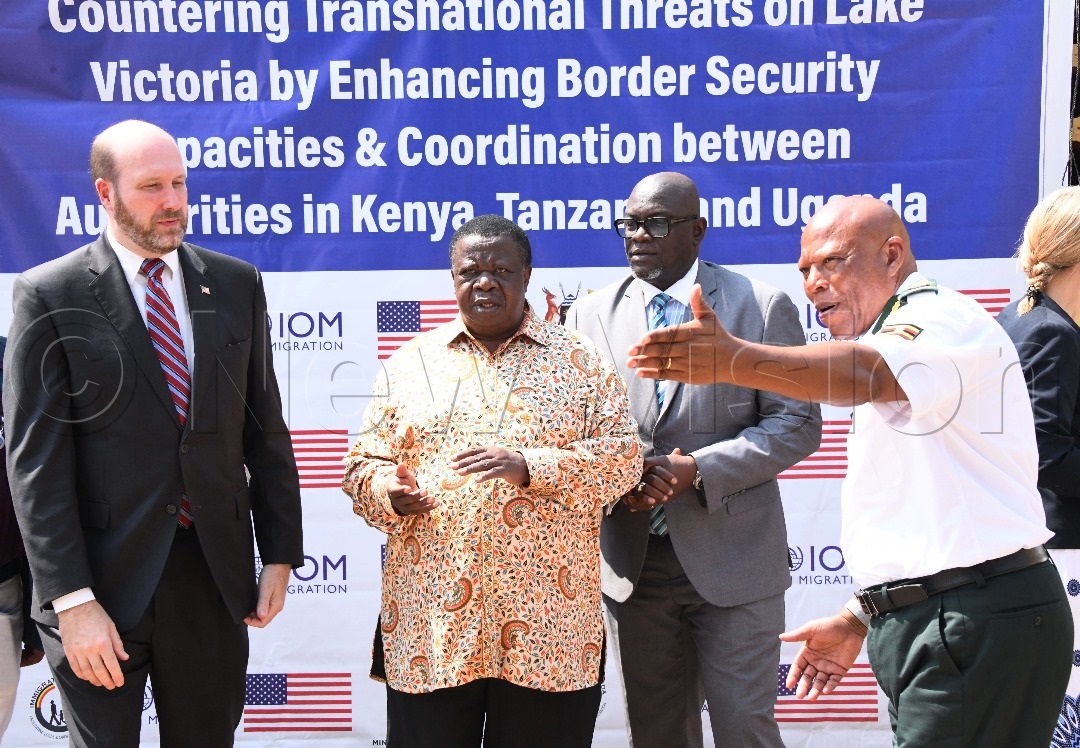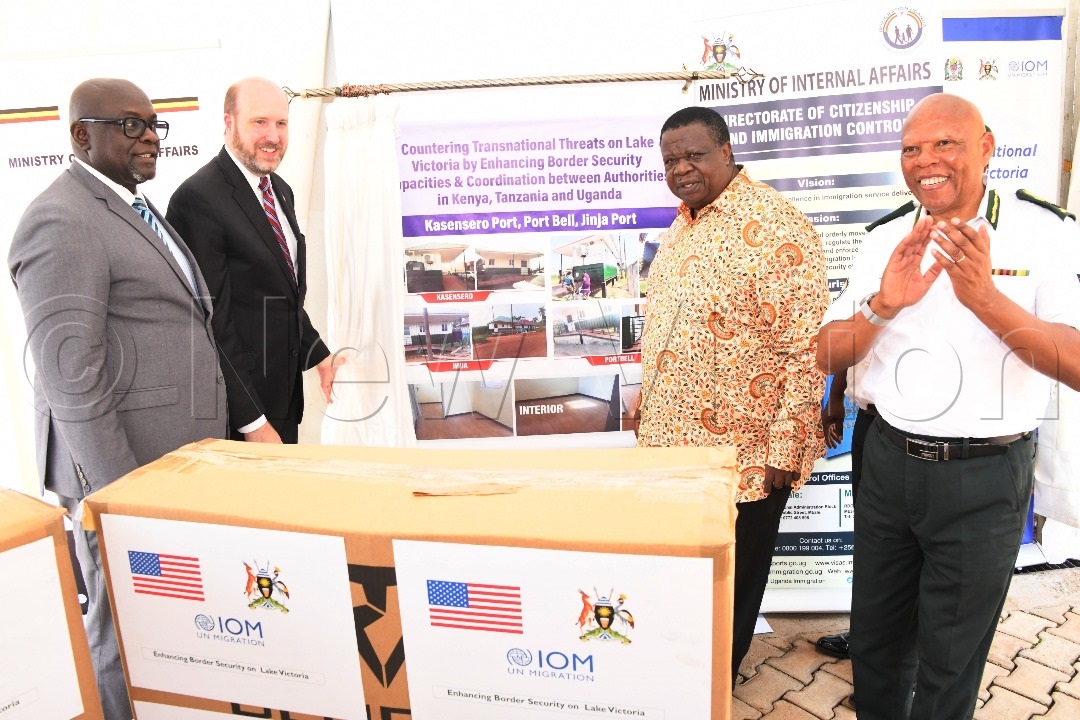The state minister for Internal Affairs, General David Muhoozi (left) talks to the director of citizenship and Immigration Control, Major General Apollo Kasiita-Gowa (right) during a conference on East Africa Border Security on 4 Nov 2025 at Mistill Hotel Kampala. Center is Nigel Manns from Somapa Information Technology. (Photos by Ronnie Kijjambu)
________________
Porous borders are the biggest threat to national security and regional stability, Uganda’s immigration authorities have said.
As a result, the authorities say the Government of Uganda is moving to deploy Artificial Intelligence (AI)-powered drones to enhance surveillance and curb illegal cross-border activities.
Speaking at the East Africa Border Security Week at Mestil Hotel in Kampala on November 4, 2025, the internal affairs ministry chief of citizenship and immigration control, Maj. Gen. Apollo Kasiita Gowa, said Uganda’s expansive and poorly monitored borders continue to facilitate smuggling, human trafficking and the movement of illicit goods.
“Every country in the region is grappling with porous borders,” Gowa said.
“You cannot deploy an officer at every point of entry, but systems like drones and AI can help us monitor and control what happens even in the most remote areas.”
He noted that the adoption of smart border management technologies marks a critical step in modernising Uganda’s immigration system, improving efficiency, and ensuring security without stifling trade.
The two-day conference, ending today, brought together over 40 immigration and customs chiefs, police and army officials, and technology providers from across the East African Community (EAC) member states and beyond.
The forum organised by the internal affairs ministry of Uganda, in collaboration with innovators such as Somapa IT, and other key players in the security equipment industry, focused on developing “smart borders” through innovations such as AI, blockchain, big data analytics and non-intrusive inspection systems.
Internal affairs state minister Gen. David Muhoozi announced that the Government is ready to integrate AI-powered drones (unmanned aerial vehicles) along strategic border points to combat illegal activity.
The director General of Immigration and Emigration in Rwanda, Lynder Nkuranga speaks during a conference on East Africa Border Security on 4 Nov 2025 at Mistill Hotel Kampala. 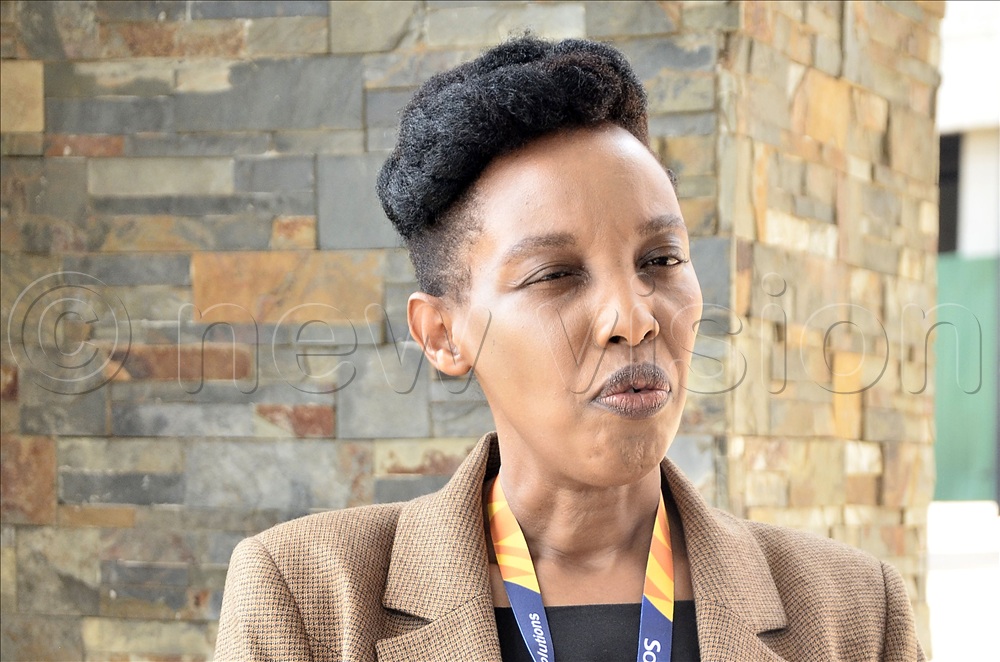
“Smart borders are about innovations that make our borders more secure and effectively managed,” Muhoozi said.
“We are meeting here to share experiences, identify gaps and improve how we handle security and trade at our borders.”
He explained that the shift toward AI technologies aligns with global trends, as countries increasingly rely on smart and data-driven systems to detect and respond to threats such as terrorism, disease outbreaks, and cross-border crime.
“We have learned from global challenges like COVID-19 that every country must strengthen its own resilience and build mechanisms to protect itself,” he said.
“But these are not challenges we can face alone; we need regional partners to share ideas and best practices.”
Technology to fight smuggling
The Uganda Revenue Authority (URA) is also joining the smart border initiative to combat smuggling and revenue loss. Asadu Kisitu, the commissioner of customs, said the integration of drones and AI will help monitor hard-to-reach areas and detect illegal cargo in real time.
“Smuggling is rampant along most of our porous borders,” Kisitu said. “When someone smuggles goods, you don’t know whether they meet standards or pose a security threat. The technology we’re exploring will help us detect and respond faster, ensuring legitimate trade while protecting government revenue.”
Kisitu emphasised that collaboration among agencies—immigration, customs, and security — is vital for the project’s success.
“Quite often, we work in silos as individual agencies,” he noted. “We now want to synergise and handle the drone project collectively to enhance safety and efficiency for everyone.”
From the Rwandan delegation, Assistant Commissioner of Police (ACP) Lynder Nkuranga, the Director General of Immigration and Emigration, underscored the importance of regional collaboration in developing smart border systems.
“As immigration, our key mandate is to facilitate legitimate trade and travel while maintaining security,” she said. “That means embracing technologies like passenger information systems, cameras, and pre-arrival data sharing to reduce delays and corruption risks.”
ACP Nkuranga explained that Rwanda is investing in systems that balance security and the smooth movement of people, supporting trade corridors and regional integration.
The East Africa Border Security Week served as a platform for dialogue between government agencies, technology innovators, and regional partners on how to address shared security concerns.
As Uganda prepares to roll out AI-powered drones, immigration officials believe the initiative could mark a turning point in border management—helping to detect crime, enhance coordination, and secure national frontiers.
“Our borders are our first line of defense,” Maj. Gen. Gowa concluded. “By embracing technology, we can finally overcome the challenge of porous borders and build a safer, more resilient Uganda.


 Rhyman Agaba
Rhyman Agaba 